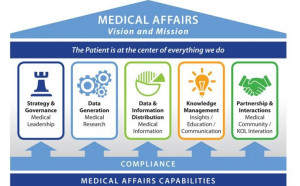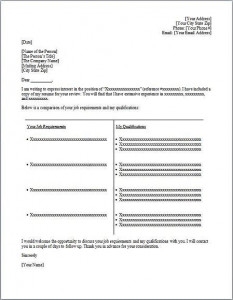 This past Thursday, March 22, 2018, I attended a seminar about Medical Affairs held at the Medical Science Building in Newark, NJ. The seminar was conducted by Brian Kramer, Ph.D, who is a principal medical science liaison (MSL) at Janssen Biotech, Inc., a Johnson & Johnson Company. Dr. Kramer earned his doctoral degree in neuroscience at The Icahn School of Medicine at Mount Sinai, studying apoptosis within the substantia nigra. Following this, he worked as a postdoctoral fellow at under Ira Black, MD at UMDNJ examining the plasticity of bone marrow derived stromal cells. Dr. Kramer discussed how he switched from working as a postdoc to eventually becoming an MSL within the gastroenterology field. Before getting this position, he thought he would finish his postdoc and get an academic position, but everything changed when he was called for an interview with Johnson & Johnson. He worked in the Research & Development section at Advance Technology, a division of Johnson & Johnson, for 7 years, before beginning to work as an MSL in gastroenterology. The following content covers questions that Dr. Kramer answered throughout the seminar on March 22. “What does an MSL do? We deliver scientific content.” “You must deliver it fast and effectively; you need to have an impact”, says Dr. Kramer, who works as a “Content MSL”. There are also “Financial” MSLs”, who are experts in all financial aspects of a product. As an MSL, you need to develop relationships with key opinion leaders, who are essentially the leading experts in a field, due to their high level of influence. Additionally, your role will include supporting advisory boards, identifying research trials, and training new MSLs. How can you become an MSL? “In order to become a MSL, you need to be an MSL”-said Dr. Kramer. What he meant, was that, before jumping into a job search for an MSL position, you usually need to get certifications, internships, and/or previous experience. You cannot get the job without MSL experience. The only way you can become a MSL without having worked in the field is through networking. LinkedIn is a powerful tool for this. He recommended reaching out to people who could potentially help you and ask them how they got from point A to point B. Essentially, show them your interest in this career path. Furthermore, he advised that, when you attend conferences, you should approach people. Even academic conferences have exhibitors and presenters from various companies. Approach them to ask about their career paths and experiences in order to make a connection! How did Dr. Kramer become an MSL? He wanted to become an MSL, so, as he was still working in the R&D position, he approached an MSL recruiter and a medical affairs director in the neuroscience division. He did not get that position at first, but he did make a connection that eventually allowed him to find an MSL position within Johnson & Johnson. So again, networking is the key to getting a position, even if you don’t have the necessary experience. How should a Ph.D. or postdoctoral student present themselves to potential MSL employers? You should start by working through what you have to offer and compare it to what the position requires. Create a two-column table, in which one side shows the job requirements and the other side shows your qualifications (example shown in figure below). According to Dr. Kramer, this is a great way to translate what you do to what they want. Now, how should you present yourself to get the job? One of our best skill sets as Ph.D.’s or postdocs is that we know how to learn. For example, Dr. Kramer, as a neuroscientist, was able to show the recruiters from the MSL gastroenterology division that inflammation is universal across all systems. He spent years understanding how inflammation affects neurons, and because he understood the process, he was capable of translating it into another system.
This past Thursday, March 22, 2018, I attended a seminar about Medical Affairs held at the Medical Science Building in Newark, NJ. The seminar was conducted by Brian Kramer, Ph.D, who is a principal medical science liaison (MSL) at Janssen Biotech, Inc., a Johnson & Johnson Company. Dr. Kramer earned his doctoral degree in neuroscience at The Icahn School of Medicine at Mount Sinai, studying apoptosis within the substantia nigra. Following this, he worked as a postdoctoral fellow at under Ira Black, MD at UMDNJ examining the plasticity of bone marrow derived stromal cells. Dr. Kramer discussed how he switched from working as a postdoc to eventually becoming an MSL within the gastroenterology field. Before getting this position, he thought he would finish his postdoc and get an academic position, but everything changed when he was called for an interview with Johnson & Johnson. He worked in the Research & Development section at Advance Technology, a division of Johnson & Johnson, for 7 years, before beginning to work as an MSL in gastroenterology. The following content covers questions that Dr. Kramer answered throughout the seminar on March 22. “What does an MSL do? We deliver scientific content.” “You must deliver it fast and effectively; you need to have an impact”, says Dr. Kramer, who works as a “Content MSL”. There are also “Financial” MSLs”, who are experts in all financial aspects of a product. As an MSL, you need to develop relationships with key opinion leaders, who are essentially the leading experts in a field, due to their high level of influence. Additionally, your role will include supporting advisory boards, identifying research trials, and training new MSLs. How can you become an MSL? “In order to become a MSL, you need to be an MSL”-said Dr. Kramer. What he meant, was that, before jumping into a job search for an MSL position, you usually need to get certifications, internships, and/or previous experience. You cannot get the job without MSL experience. The only way you can become a MSL without having worked in the field is through networking. LinkedIn is a powerful tool for this. He recommended reaching out to people who could potentially help you and ask them how they got from point A to point B. Essentially, show them your interest in this career path. Furthermore, he advised that, when you attend conferences, you should approach people. Even academic conferences have exhibitors and presenters from various companies. Approach them to ask about their career paths and experiences in order to make a connection! How did Dr. Kramer become an MSL? He wanted to become an MSL, so, as he was still working in the R&D position, he approached an MSL recruiter and a medical affairs director in the neuroscience division. He did not get that position at first, but he did make a connection that eventually allowed him to find an MSL position within Johnson & Johnson. So again, networking is the key to getting a position, even if you don’t have the necessary experience. How should a Ph.D. or postdoctoral student present themselves to potential MSL employers? You should start by working through what you have to offer and compare it to what the position requires. Create a two-column table, in which one side shows the job requirements and the other side shows your qualifications (example shown in figure below). According to Dr. Kramer, this is a great way to translate what you do to what they want. Now, how should you present yourself to get the job? One of our best skill sets as Ph.D.’s or postdocs is that we know how to learn. For example, Dr. Kramer, as a neuroscientist, was able to show the recruiters from the MSL gastroenterology division that inflammation is universal across all systems. He spent years understanding how inflammation affects neurons, and because he understood the process, he was capable of translating it into another system.  If you are a prospective MSL, you should have a 5-minute elevator speech of why you want to work in the field. You also need to be able to listen to your audience; you should be able to read a room—know when your time is up, or when you need to change your tone or your pace, because the audience might be losing interest. You should be able to present and keep the audience interested in you and your product, because you will be the expert. In case you missed it, you can listen to Dr. Kramer’s experience as an MSL and how he switched to this career path, via the iJobs Seminar: Medical Affairs podcast. Junior editor: Huri Mucahit Senior editor: Paulina Krzyszczyk
If you are a prospective MSL, you should have a 5-minute elevator speech of why you want to work in the field. You also need to be able to listen to your audience; you should be able to read a room—know when your time is up, or when you need to change your tone or your pace, because the audience might be losing interest. You should be able to present and keep the audience interested in you and your product, because you will be the expert. In case you missed it, you can listen to Dr. Kramer’s experience as an MSL and how he switched to this career path, via the iJobs Seminar: Medical Affairs podcast. Junior editor: Huri Mucahit Senior editor: Paulina Krzyszczyk
iJOBS Blog